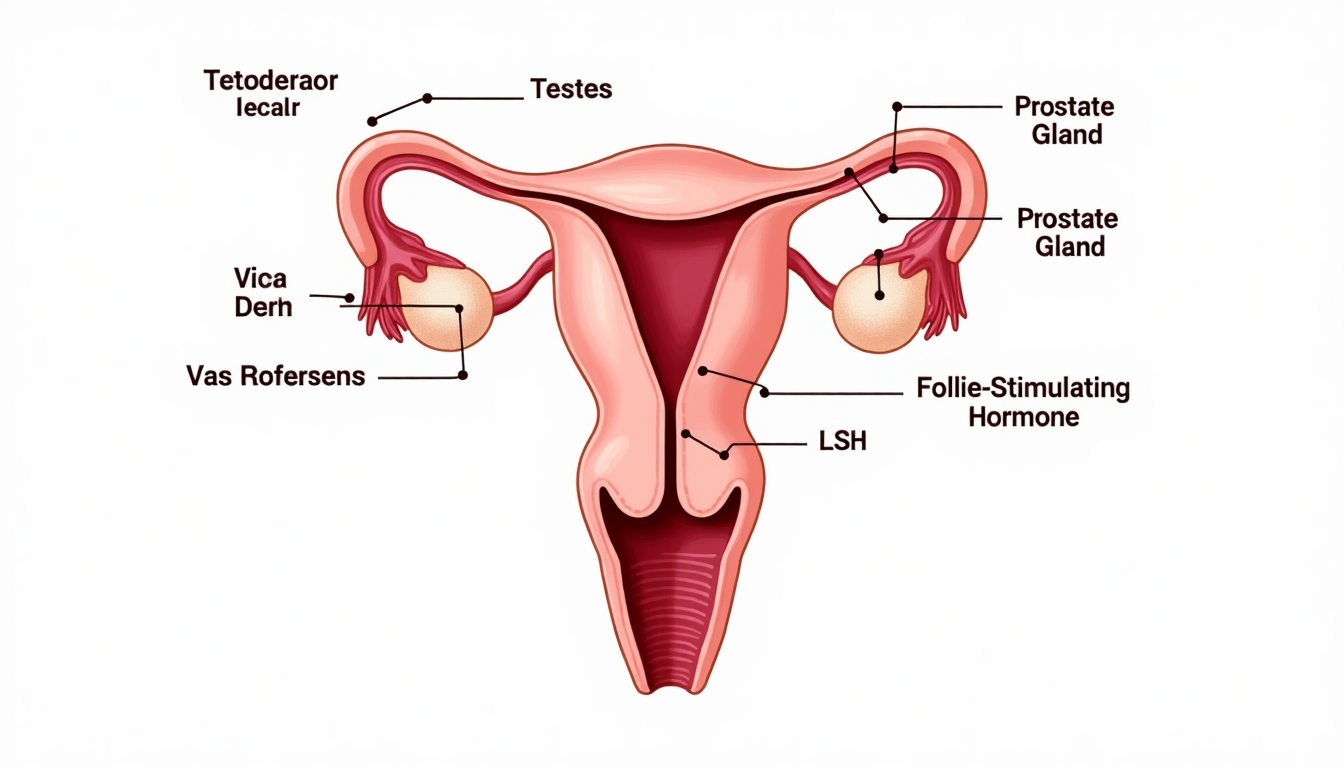Navigating Male Infertility and Hormonal Imbalances
Feb. 3, 2025, 5:05 p.m.
Understanding Male Infertility and Hormonal Imbalances
Male infertility and hormonal imbalances are pressing issues that can impact family plans and emotional well-being. Explore the causes, symptoms, and treatment in a straightforward manner, enriched with personal insights.

What is Male Infertility?
Male infertility refers to a man’s inability to cause pregnancy in a fertile female partner. It affects about 10% of couples trying to conceive, and men contribute to infertility issues in about half of these cases. Many factors can lead to male infertility, including abnormal sperm production or function, lifestyle impacts, and other health issues.
Key Hormones Involved
Some key hormones influence male fertility:
- Testosterone: Vital for sperm production, libido, and overall male health.
- FSH (Follicle Stimulating Hormone): Critical for the production of healthy sperm.
- LH (Luteinizing Hormone): Stimulates the production of testosterone.
Imbalances in these hormones can disrupt the process, leading to infertility.

Causes of Hormonal Imbalances and Infertility
A variety of factors can lead to hormonal imbalances and infertility in men, including:
- Medical Conditions: Diabetes, cystic fibrosis, some infections, and genetic abnormalities.
- Lifestyle Factors: Obesity, smoking, alcohol use, and exposure to certain chemicals and heat.
- Hormonal Imbalances: Low testosterone or other hormonal disruptions can hinder sperm production.

Personal Insights into Living with Infertility
"When I first suspected infertility issues, it was overwhelming. The societal pressure and personal expectations added to the stress. After several tests, I learned that my testosterone levels were low. Understanding the condition brought some relief, but it also opened a new chapter of challenges in dealing with it."
Managing Male Infertility
While discovering such issues can be disheartening, several solutions offer hope:
- Lifestyle Changes: Improving diet, exercise, and eliminating vices like smoking.
- Medications: Treatments to balance hormones or address underlying conditions.
- Assisted Reproductive Technologies (ART): Options like IVF or IUI.
Each journey is unique, and consulting a healthcare provider for personalized advice is crucial.

Emotional and Mental Health
Dealing with infertility can be emotionally straining. Many find solace in support groups, therapy, or open discussions with partners. Sharing feelings can ease the burden, helping maintain a healthy relationship dynamic as you tackle challenges together.
Moving Forward
Understanding and addressing male infertility requires patience and self-care. The journey is not solely about the end result but also about how it brings you closer to your partner, discovering new strengths and resilience.

Conclusion
Male infertility and hormonal imbalances might seem daunting, but with the right support and treatments, there is hope for many families. By tackling challenges holistically, men can find pathways to overcome infertility.